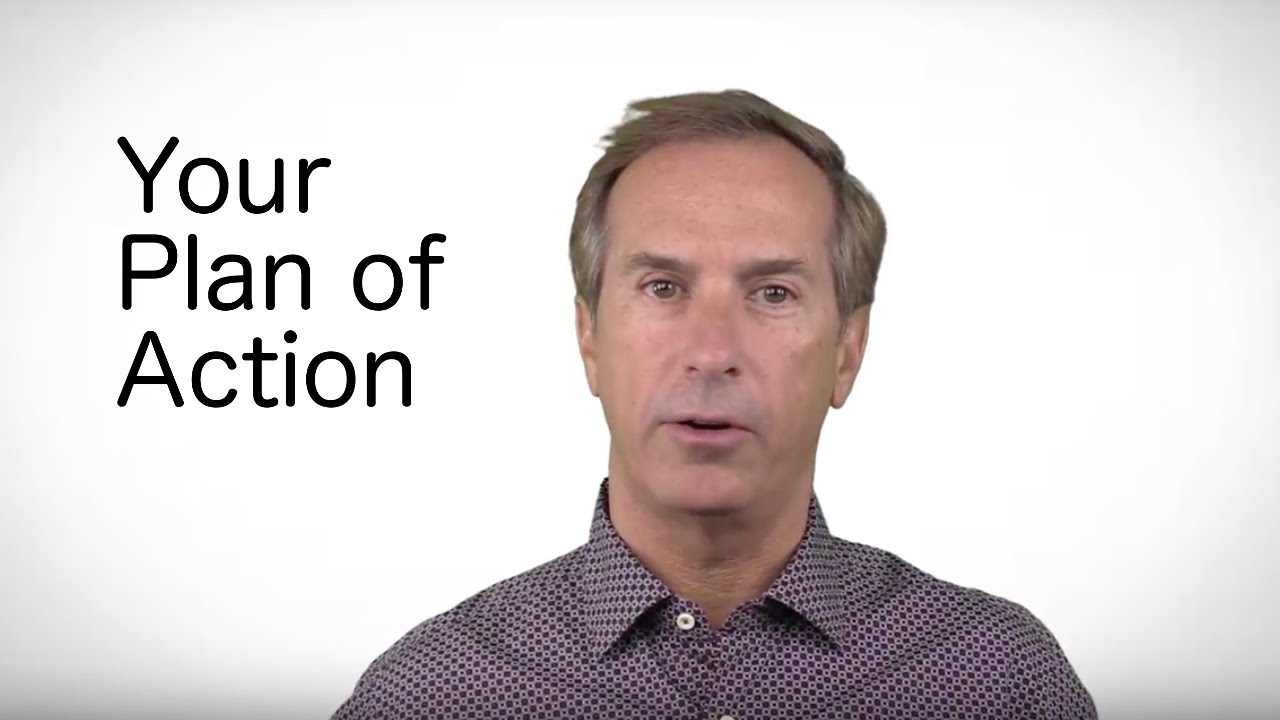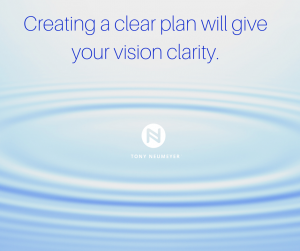Summary
Would you believe me if I told you that the most important part of your day actually happens the night before?
A common trait of many top performers that I know is that they all block out a chunk of time each evening to ruthlessly review and scrutinize how they plan to spend their time the next day. They know that their days are finite and too precious to spend with any uncertainty about what to do or work on next.
I have adopted the tactic of using a daily efficiency planner to prioritize and map out what I will be focused on the next morning. This ensures that I immediately hit the ground running from the moment I wake up. If you are going to make the effort to wake up early each day, you owe it to yourself to ensure that you use each minute to its maximum utility.
Read on to learn more about how you prepare to win each day – by starting the night before.
Transcript
So what’s your plan?
Not having a vision laid out in explicit detail on how you aim to drive toward your goals is a surefire sign that you are not serious about your goals. The simple act of just committing your objectives and strategy to paper makes it exponentially more likely that you will follow through on what you need to do. Many big goals – starting a business, writing a book, running a marathon – can seem so overwhelming that it is paralyzing to contemplate starting.
You may find far more success by breaking up your mission into smaller chunks that are easier for you to manage. You will achieve a greater sense of accomplishment and momentum as you check off each of these steps, providing you with greater confidence as you continue on tackling your goal.
Create Accountability
You may be tempted to keep your ambitions to yourself. It may seem that you are setting yourself up for failure or embarrassment if you share them with others in your life. This is the root of accountability, however. Articulating exactly what it is you are striving toward and building a community of trusted individuals who know about are also invested in supporting you as you strive toward your goals. These can include online communities of folks with similar interests whose experiences and perspectives can benefit you. A key factor in your plan has to include adding in accountability checks so that you have a real incentive to demonstrate that you are continuing to progress.
Many people settle for the status quo or “good enough” believing that it’s somehow elitist or ungrateful to aspire to something greater. Let others maintain this attitude – this will ensure that you have less competition for the really big and audacious goals that you have in your sights.
Establish a Timetable
It begins with laying out a robust time table full of deadlines and milestones stating by when you will have accomplished various tasks. Investing the time upfront to map out what you will be doing and when will boost your productivity enormously.
This applies for both the short-term of what you will be focusing your energies on over the next few months and the longer-term of where you ultimately see yourself over the next decade. Very few high achievers simply wander into positions of influence and affluence by happenstance. It is far more likely to be the end result of a series of strategic plays for roles of greater responsibility and visibility. Having a game plan in place will make it far simpler for you to determine which obligations you are better served to simply say “no” to.
Visualize and Define Your Goals
Visualizing your goal is another important component of staying on track. It is hard to consistently maintain the ongoing effort it takes to ultimately creative passive wealth if you aren’t clear on why exactly you are working so hard. By focusing your vision on a concrete goal that you can visualize – a seven figure bank account figure, a boat, a house full with happy family members – you will be in a much better place to maintain your spark over the long haul for the steps you need to be taking. Visualization is a tool that can give you a multiplier effect, helping you to face down challenges and stay on task by being able to more clearly see the options aligned before you.
There are several key steps you can start off with in order to reach your goal. You might want to first start by distinguishing between goals that are focused on process and goals that are focused on outcome, or results. For example, a goal to exercise each day or to run a certain number of miles in a given week is an example of a process goal. You have set a benchmark for a behavioral change that you want to see reflected in your routine and actions.
An outcome goal, on the other hand, refers to the specific progress or milestones that you want to see – for example, a reduction in weight or your blood pressure. Obviously the success of your milestone goal will ultimately rest in successfully meeting the requirements laid out in your process goal, but don’t conflate the two. A common mistake I see is that many set process goals without any regard for what the outcome is that they are ultimately striving toward. Thus, they dutifully head to the gym or stay late at the office each day, but they don’t have a fixed North Star in place guiding them for where they plan to be heading.
Set The Deadline
That includes a firm deadline. It isn’t enough to have vague aspirations – these may do well for general themes when you are brainstorming what you are interested in, but finishing a major project or endeavor requires that you draw a “drop dead” date in the sand by which you will know whether you have achieved your goal or fallen short. A reason why many of us fail to do this stems from the reality that deadlines can be very unpleasant and stressful. Dealing with enough of them already with our bills and jobs working for others, we may be reluctant to impose the same type of restrictions upon ourselves in our personal ambitions – but they are absolutely essential to providing a sense of urgency to keep us moving along our plan.
Keep in mind that your plan has to be the best fit for you. We all have different styles of working and tackling our goals. While I humbly suggest that most high achievers tend to be early risers who knock out their to-do list while most people are still sleeping, you may absolutely be hardwired to be a night person – and you should work considerations of what works best for you into your planning.
Evaluation and Adjustments Along The Way
Your plan should be an organic, ongoing process – not just a document that sits on a shelf somewhere. You might want to spend a set chunk of time each week reviewing your plan and how your week ahead fits into the strategic framework of your goals. You might also work some reflection time into this period. This will allow you to take stock of if where you are headed fits what you really want to get out of life and whether you are finding happiness and contentment with the path you are pursuing. Make sure you are pursuing goals because you want to. They should be meaningful to you and make the best use of your individual talents, rather than pursuing a monetary or professional goal just because you believe it will be impressive to others. You are the one who must live your life and you should plan to build one that dovetails with what you want to get out of it.
What type of goal setting and planning exercises do you do to help you stay on track? How have you reacted when unexpected events have compelled you to change the plan along the way?
You can also learn more by visiting my website: tonyneumeyer.com and registering to receive free trainings articles and more. Also subscribe to my YouTube channel and follow me on Facebook. You can get your copy of The 7 Minute Millionaire and check out my other books here: https://tonyneumeyer.com/books/.



